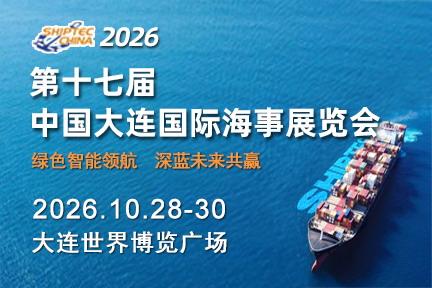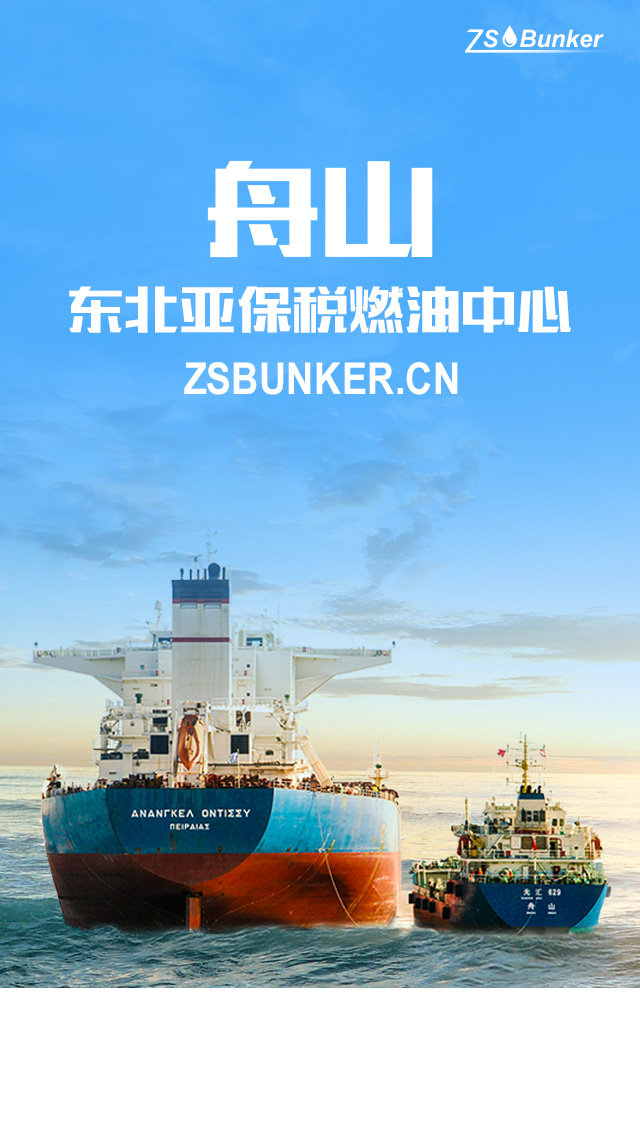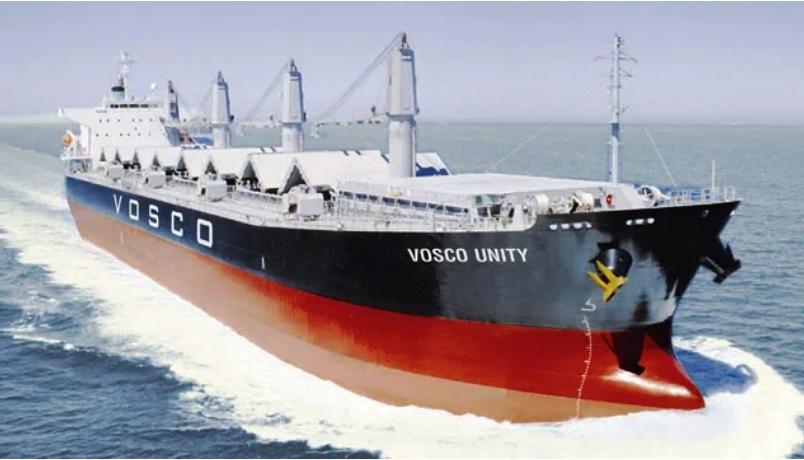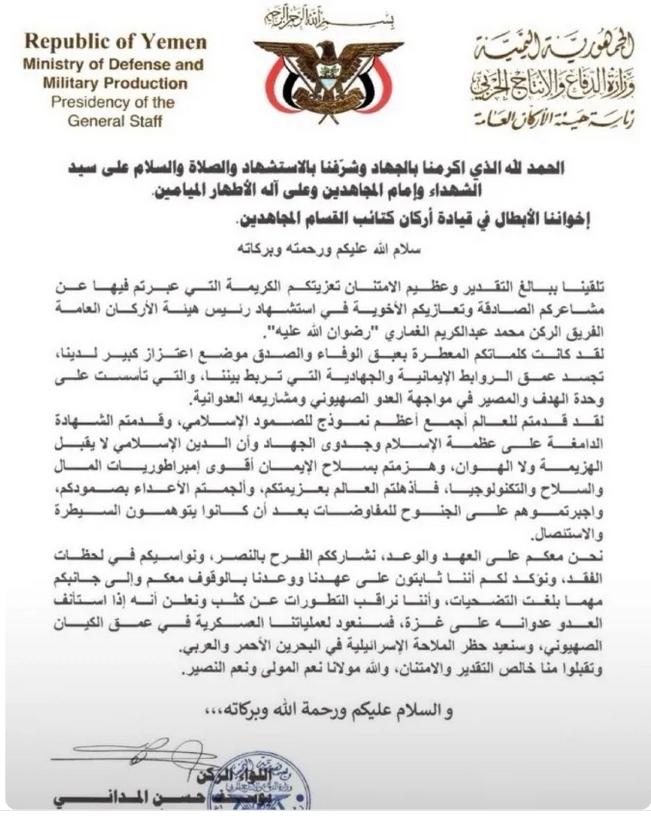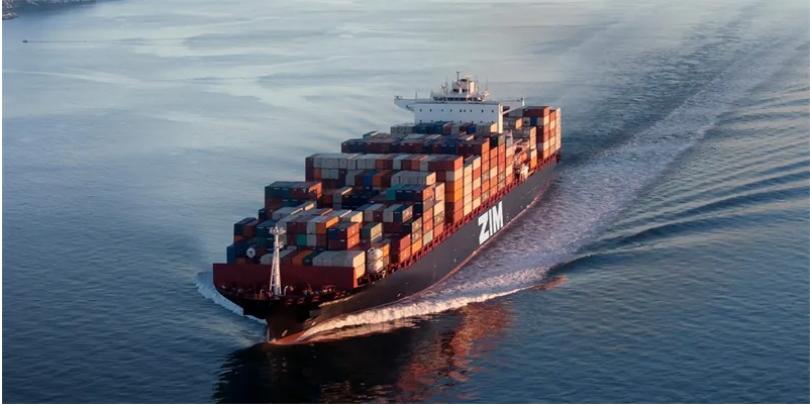
其它案例分析:
一、[2014]EWHC 885 (Comm)-The “Bulk Uruguay”
在该案中, DRY BULKHANDY HOLDINGS INC (以下简称“船东”)将在菲律宾某船厂的新造船,58,000载重吨的超灵便型船M/V "BULKURUGUAY"在2010年7月2日以改正过带有附加条款的NYPE租约格式,租给GEDEN OPERATIONS LTD(以下简称“租家”),租期约35到37个月。 租约中第8条通常一样,规定船长需听从租家合法的命令及航次指示。也包括了BIMCO防海盗条款及期租租约战争险条款。
其中CONWARTIME2004条款中的(a)和 (b)已经删除如下,取而代之的是GOA OK。
(c) The Vessel shall not be required to loadcontraband cargo, or to pass through any blockade, whether such blockade beimposed on all vessels, or is imposed selectively in any way whatsoever againstvessels of certain flags or ownership, or against certain cargoes or crews orotherwise howsoever, or to proceed to an area where she shall be subject, or islikely to be subject to a belligerent’s right of search and/or confiscation.
(d) (i) The Owners may effect war risksinsurance in respect of the Hull and Machinery of the Vessel and their otherinterests (including, but not limited to, loss of earnings and detention, thecrew and their protection and Indemnity Risks), and the premiums and/or callstherefor shall be for their account.
(ii) If the Underwriters of such insuranceshould require payment of premiums and/or calls because, pursuant to theCharterers' orders, the Vessel is within, or is due to enter and remain within,or pass through any area or areas which are specified by such Underwriters asbeing subject to additional premiums because of War Risks, then the actualpremiums and/or calls paid shall be reimbursed by the Charterers to the Ownersat the same time as the next payment of hire is due, or upon redelivery,whichever occurs first.
(e) If the Owners become liable under theterms of employment to pay to the crew any bonus or additional wages in respectof sailing into an area which is dangerous in the manner defined by the saidterms, then the actual bonus or additional wages paid shall be reimbursed tothe Owners by the Charterers at the same time as the next payment of hire isdue, or upon redelivery, whichever occurs first.
(f) The Vessel shall have liberty:-
(i) to comply with all orders, directions,recommendations or advice as to departure, arrival, routes, sailing in convoy,ports of call, stoppages, destinations, discharge of cargo, delivery, or in anyother way whatsoever, which are given by the Government of the Nation underwhose flag the Vessel sails, or other Government to whose laws the Owners aresubject, or any other Government, body or group whatsoever acting with thepower to compel compliance with their orders or directions;
(ii) to comply with the order, directions orrecommendations of any war risks underwriters who have the authority to givethe same under the terms of the war risks insurance;
(iii) to comply with the terms of anyresolution of the Security Council of the United Nations, the effective ordersof any other Supranational body which has the right to issue and give the same,and with national laws aimed at enforcing the same to which the Owners aresubject, and to obey the orders and directions of those who are charged withtheir enforcement;
(iv) to discharge at any other port any cargoor part thereof which may render the Vessel liable to confiscation as acontraband carrier;
(v) to call at any other port to change thecrew or any part thereof or other persons on board the Vessel when there isreason to believe that they may be subject to internment, imprisonment or othersanctions.
(g) If in accordance with their rights underthe foregoing provisions of this Clause, the Owners shall refuse to proceed tothe loading or discharging ports, or any one or more of them, they shallimmediately inform the Charterers. No cargo shall be
discharged at any alternative port withoutfirst giving the Charterers notice of the Owners' intention to do so andrequesting them to nominate a safe port for such discharge. Failing suchnomination by the Charterers within 48 hours of the receipt of such notice andrequest, the Owners may discharge the cargo at any safe port of their ownchoice.
(h) If in compliance with any of the provisionsof sub-clauses (b) to (g) of this Clause anything is done or not done, suchshall not be deemed a deviation, but shall be considered as due fulfilment ofthis Charter Party.
在2011年7月8日,租家通过经纪发邮件给船东,说第一个处女航次,租家有意向安排船舶通过亚丁湾(Gulf of Aden)将船摆位到大西洋,询问船东额外的保费。
船东随后找原船东寻求处女航过亚丁湾许可。在7月11日原船东回复邮件拒绝过亚丁湾。但在7月15日原船东发邮件说改变主意,同意过亚丁湾,但同时声明只是针对第一个航次,今后别的航次将不允许再过亚丁湾。
租家说按租约过亚丁湾无需取得船东同意;船东解释说虽然合同删除那些条款,但他们在过亚丁湾之前,仍得取得原船东同意许可。租家在7月23日发邮件给船东说,由于船东极力主张在过亚丁湾之前需取得船东事先同意,已经构成了毁约,租家意图接受船东违约并终止租约。船东在7月25日发邮件声称,接受租家毁约终止合同。随后船东找租家索赔650万美金因租家毁约带来的损失;租家抗辩说是船东说不同意过亚丁湾,给租家经营方面带来了很大影响,剥夺了租家可以赚取的利益,船东构成毁约在先,于是选择终止合同。
争议的两个问题主要为(a)船东的行为是否构成了预期毁约,(b)如果是,那么是否剥夺了租家可能的收益?
(a) Did the Owners by their words or conductevince an intention not to perform, or expressly declare that they would be unableto perform, their obligations under the Charterparty?
(b) If so, did such a refusal have the effectof substantially depriving the Charterers of the whole benefit which it was theintention of the parties that they should obtain from the contract?"
对于一个问题,法官Popplewell在经过分析后认为,认为多数仲裁员在法律上并没有引援错误,船东的行为并不存在预期毁约。
The relationship between the two types ofanticipatory breach was discussed by Devlin J in Universal Carriers vCitati [1957] 2 QB 401 at 436-438:
"The law on the right to rescind issuccinctly stated by Lord Porter in Heyman v. DarwinsLtd. as follows: "The three sets of circumstances giving rise to adischarge of contract are tabulated by Anson as: (1) renunciation by a party ofhis liabilities under it; (2) impossibility created by his own act; and (3)total or partial failure of performance.
There was no error of law. The majorityaddressed the correct question and reached a conclusion of fact which was opento them and which is not susceptible of review on this appeal. The minorityarbitrator concluded that the Owners made clear that they would not be able tocomply with orders to transit GOA promptly. That was an alternative conclusionwhich may have been available on the facts, but it was not the view of themajority.
对于第二个问题,法官Popplewell认同船东律师Hill的抗辩,对于第一处女航次,租家并没有实质性签订;而且对于长期租约来说,对于需过亚丁湾可能给租家收益带来的影响,也得根据实际情况,确实已经签订了租约需过亚丁湾。
Mr Hill QC submitted that this was not thecorrect approach. The required approach was to identify the benefit whichCharterers would have derived under the Charterparty for the remainder of thecontractual period, looking at the question prospectively at the date ofanticipatory breach; and then to ask whether the Owners' conduct deprived themof substantially the whole of that benefit. This involved asking two questions.The first was whether and to what extent Charterers would have wished to tradevia GOA. The second was what would have happened had they wanted to. Themajority answered the first question by finding that Charterers would not havewished to trade the Vessel via the GOA in the foreseeable future. The secondquestion was not answered by assuming that a voyage order via GOA would havebeen given, and not been promptly complied with, because knowing that headowner consent would be required, the Charterers would never have fixed theVessel to a subcharterer for GOA transit; they would not have taken the riskthat they could not procure prompt consent and so have incurred the risk oftheir own inability to comply with a valid voyage GOA transit order under a subtime charter, or to perform a GOA transit voyage sub charter. The benefit ofwhich Owners' conduct deprived the Charterers therefore was the opportunity inthe longer term to market the Vessel as GOA OK on those occasions when theywould otherwise have wished to make her available to trade her via GOA.
I accept Mr Hill QC's submissions that thisis the correct approach dictated by the principles set out recently by theCourt of Appeal in Telford Homes (Creekside) Ltd v Ampurius Nu HomesHoldings Ltd [2013]EWCA Civ 577. That being so, the ground of appeal isessentially one of fact not law.
一旦法院得出结论,一个能够正确理解法律的法庭能够达到与仲裁员达成一致的答案,那么,个别法官得出不同结论的事实,不足以扰乱裁决。
法官驳回租家上诉。
As Mustill J said in The Chrysalis [1983] 1 Lloyd's Rep 503 at 507: "….once theCourt has concluded that a tribunal which correctly understood the law couldhave arrived at the same answer as the one reached by the arbitrator, the factthat the individual judge himself would have come to a different conclusion isno ground for disturbing the award."
Accordingly the appeal fails on this groundalso.
在该案中,租约已经列明了GOA OK,也就是说亚丁湾可以过。租家完全可以坚持要求过亚丁湾,逼迫船东去做适当的安排,比如询问护航编队时间及安排武装护卫等。如果船东最终仍然坚持不过亚丁湾,那么船东违反租约,有损失的话租家可以找船东索赔。但是租家失误的地方是,在自己航次任务没有最终确定的情况下,贸然选择了终止合同,结果导致租家自己毁约,船东有权利索赔因租家毁约而带来的一切损失。
二、[2010] EWHC 1340 (Comm) (11 June 2010) –The “Saldanha”
在该案中,The Saldanha 轮在其过亚丁湾期间,于2009年2月22日被索马里海盗劫持,4月25日被释放,5月2日回到和被劫持位置等效地点(equivalent position)。租家主张被海盗劫持期间从2月22日到5月2日,船舶应该停租。鉴于海盗劫持不能归为共同海损事故所引起的扣押,也不算是人员的不足和/或过错,也不能归类于15条停租条款中的“Any other cause”,任何其他(阻止船舶完全运作)的原因,法官Gross驳回租家诉求,同时认为海盗劫持是个classis example of a totally extraneous cause,非常典型的完全是外部原因造成的例子。
综上原因,在海盗劫持期间租家无权停租。
Thearbitrators determined a number of preliminary issues arising under clause 15and under other clauses of the charterparty. As to clause 15, the tribunal held that the detention bypirates did not have the effect of putting the vessel off-hire under thatclause. The tribunal also held that the vessel was not off-hire under clause 39and that the war risk and insurance provisions of the charterparty did notpreclude the owners from claiming hire in respect of periods during which thevessel was under the control of pirates.
The charterersappealed to the High Court in relation to the tribunal’s determination that the vessel was not off-hireunder clause 15. There was no appeal in relation to the tribunal’s other determinations.
The chartererssubmitted that they had succeeded in bringing themselves within one or more ofthe following three causes contained in clause 15 of the charterparty, namely(1) “Detentionby average accidents to ship or cargo”, (2) “Default and/or deficiency of men”, and (3) “Any other cause”.
Held , that as to(1) there was no “Detention by average accidents to ship or cargo”. In The Mareva AS [1977] 1 Lloyd’s Rep 368, 381 Kerr J said that “average accident” meant “an accident which causes damage”. On any view, the piracy incident did not resultin damage to the vessel. Kerr J’s observation had been accepted as correct for 30years, and as settling the issue of the meaning of “average accident” in the NYPE form. Innumerable charterparties hadbeen made on that basis. The Court would only differ from the view expressed byKerr J if persuaded that it was clearly wrong. To the contrary, Kerr J’s viewseemed right. Moreover, the incident could not properly be described as an“accident”. Furthermore, “average”, in the present context was not simply to beequated with a peril ordinarily covered by marine insurance. At the least, inthe present context, damage to the ship was an essential ingredient for thewording “average accidents to ship” to apply.
As to (2) there wasno “Defaultand/or deficiency of men”. The tribunal had been asked to determine whether, onthe (disputed) factual assumption that the officers and crew had failed to takerecognised anti-piracy precautions, before and during the attack, thosefailures would fall within the exception “default of men”. The tribunal had further been asked to assumethat that failure on the part of the officers and crew was a significant causeof the loss of time resulting from the pirates taking over the vessel andconsequent loss of full working of the vessel. The charterers had submittedthat the natural meaning of “ default of men” included a failure to perform or a breach by themaster and crew of their duties. However, the context presented an insuperableobstacle to adopting the charterers’ construction of “default of men”. In context, “default of men” in clause 15 had a narrower construction, andmeant a refusal by officers or crew to perform all or part of their duties as owedto the shipowner and not the negligent or inadvertent performance of thoseduties.
As to (3), theincident did not fall within the words “Any other cause”. The starting point was to underline that clause15 contained the wording “ any other cause ” rather than the wording “any other cause whatsoever ”. That difference in wording was significant (seeThe Laconian Confidence [1997] 1 Lloyd’s Rep 139, 150 – 151). The act of piracy was not eiusdem generis .It did not arise out of the condition or efficiency of the vessel, or the crew,or the cargo, or the trading history, or any reasonable perception of suchmatters by outside bodies. It was a truly extraneous cause. The effect of thebargain contained within clause 15, construed in its general context, was thatthe owners did not take the risk of the full working of the vessel beingprevented by an extraneous cause such as piracy. The charterers assumed thatrisk.
In conclusion, theseizure of a ship by external actors was a recognised peril; but no such perilwas covered by clause 15 of the charterparty. Moreover, and significantly,there was in the charterparty a “bespoke” clause dealing inter alia with seizures. Clause 40of the charterparty provided as follows:
“Clause40 –Seizure/Arrest/Requisition/Detention Should the Vessel be seized, arrested,requisitioned or detained during the currency of this Charter Party by anyauthority or at the suit of any person having or purporting to have a claimagainst or any interest in the Vessel, the Charterers’ liability to pay hire shall cease immediately fromthe time of her seizure, arrest, requisition or detention and all time so lostshall be treated as off-hire until the time of her release…”
Plainly, however,clause 40 did not extend to cover seizure by pirates. Perhaps that was thecharterers’misfortune but it did not furnish justification for distorting the meaning ofclause 15. Should parties be minded to treat seizures by pirates as an off-hireevent under a time charterparty, they could do so straightforwardly and mostobviously by way of an express provision in a “seizures” or “detention” clause. Alternatively and at the very least, theycould add the word “whatsoever” to the wording “any other cause”, although that route would not give quite the samecertainty.
The appeal would bedismissed.
在这个案里,如果租约无相反规定,那么被海盗劫持了,租家不可以停租。因此租家在安排船舶过或前往有海盗风险港口或区域,最好先去查核一下租约的相关条款,比如停租条款,互相免责条款,不可抗力条款等等,看看是否可以免责。要不然贸然安排船舶前往,结果船舶不幸被海盗劫持,租家自己还不能停租,不得不继续支付租金给船东,那么对租家而言损失将是非常巨大的。
三、[2012] EWHC 1888(Comm)-The “Paiwan Wisdom”
在该案中,原船东把船PAIWAN WISDOM租给Kent LineInternational Ltd(以下简称“二船东”),二船东在2010年3月25日的时候,以NPYE93的租约格式租给了Solym Carriers Ltd(以下简称“租家”),租期约11-13个月。
在2010年4月22日于日本的Hakodate交船给租家,租家在4月24日给船上发航次指示,要求前往台湾的Hoping装水泥熔渣,到肯尼亚的Mombasa卸。但是原船东依赖CONWARTIME2004条款,拒绝执行该航次任务。租家没有办法,寻找替代船,损失了85万美金,找船东索赔。
租约相关条款规定如下:
Clause 5 Trading Limits
The Vessel shall be employed in such lawfultrades between safe ports and safe places within (See Clause 50).
Clause 50 Trading limits / exclusions
Vessel always to trade within I.W.L., Charterers'option breach of LW.L. subject to Owners' underwriters approval and invoice(Owners will assist to obtain the rate lower or approximate to London scale. itis however WOG), always afloat at any time of tide, Charterers' option NAABSA,always via safe port(s)/berth(s)/anchorage(s) excluding:
Abkhazia, Angola, Cambodia, C.I.S. FarEastern ports, Eritrea, Ethiopia, Georgia but the port of Poti is allowed,Great Lakes, Haiti, Lebanon, but Iraq will be allowed as soon as situationnormalizes, Israel, Liberia, North Korea, Serbia, Somalia, Syria is allowedprovided vessel is not flying Liberian flag, Yemen, Zaire, places subject toU.N. sanctions, areas prohibited by vessel's war risks underwriters due towar-like activities, and places which may be excluded by the authority of thevessel's flag. Passing Gulf of Aden always allowed with H&M insuranceauthorization.
Cuba is included in the trading of the vesselbut to be redelivered to the Owners free of any U.S.A. ban.
No direct trade between People's Republic ofChina and Taiwan.
Clause 94 – BIMCO War Risks Clause forTimeCharters 2004
Code Name: CONWARTIME 2004
(a) For the purpose of this Clause, thewords:
(i) "Owners" shall include theShipowners, Bareboat Charterers, Disponent Owners, managers or other operatorswho are charged with the management of the Vessel, and the Master; and
(ii) "War Risks" shall include anyactual, threatened or reported: war; act of war; civil war; hostilities;revolution; rebellion; civil commotion; warlike operations; laying of mines;acts of piracy; acts of terrorists; acts of hostility or malicious damage;blockades (whether imposed against all vessels or imposed selectively againstvessels of certain flags or ownership, or against certain cargoes or crews orotherwise howsoever); by any person; body; terrorist or political group, or theGovernment of any state whatsoever, which, in the reasonable judgement of theMaster and/or the Owners, may be dangerous or are likely to be or to becomedangerous to the Vessel, her cargo, crew or other persons on board the Vessel.
(b) The Vessel, unless the written Consent ofthe Owners be first obtained, shall not be ordered to or required to continueto or through, any port, place, area or zone (whether of land or sea), or anywaterway or canal, where it appears that the Vessel, her cargo, crew or otherpersons on board the Vessel, in the reasonable judgement of the Master and/orthe Owners, may be, or are likely to be, exposed to War Risks. Should theVessel be within any such place as aforesaid, which only becomes dangerous, oris likely to be or become dangerous, after her entry into it, she shall be atliberty to leave it.
………
(d) (i) The Owners may affect war risksinsurance in respect of the Hull and Machinery of the Vessel and their otherinterests (including but not limited to, loss of earnings and detention, thecrew and their protection and Indemnity Risks), and the premiums and/or canstherefore shall be for their account.
(ii) If the Underwriters of such insuranceshould require payment of premiums and/or call because, pursuant to theCharterers' orders, the Vessel is within, or is due to enter and remain within,or pass through any area or areas which are specified by such Underwriters asbeing subject to additional premiums because of War Risks, then the actualpremiums and/or calls paid shall be reimbursed by the Charterers to the Ownersat the same time as the next payment of hire is due, or upon redelivery,whichever occurs first.
(e) If the Owners become liable under theterms of employment to pay to the crew any bonus or additional wages in respectof sailing into an area which is dangerous in the manner defined by the saidterms, then the actual bonus or additional wages paid shall be reimbursed tothe Owners by the Charterers at the same time as the next payment of hire isdue, or upon redelivery, whichever occurs first.
(f) If in accordance with their rights underthe foregoing provisions of this Clause, the Owners shall refuse, to proceed tothe loading or discharging ports, or anyone or more of them, they shallimmediately inform the Charterers. No cargo shall be discharged at anyalternative port without first giving the Charterers notice of the Ownersintention to do so and requesting them to nominate a safe port for such discharge.Failing such nomination by the Charterers within 48 hours of the receipt ofsuch notice and request, the owners may discharge the cargo at any safe port oftheir own choice,
………
(h) If in compliance with any of theprovisions of sub-clauses (b) to (g) of this Clause anything is done or notdone, such shall not be deemed a deviation, but shall be considered as duefulfilment of this Charter Party.
在该案中,争议的主要焦点是:依照PaiwanWisdom轮租约的真实意图,二船东是否不允许依赖CONWARTIME2004条款,而拒绝去执行租家的航次任务?
Whether, on the true construction of theCharterparty of the PAIWAN WISDOM between the Claimant (as charterers) and theDefendant (as disponent owners) dated 25 March 2010, the Defendant is precludedfrom relying upon on the CONWARTIME 2004 clause to justify its refusal to proceedon a voyage to Mombasa ordered by the Claimant on 23 April 2010 in the eventthat there was no material change in the risk (otherwise encompassed within thewords of the CONWARTIME 2004 clause) of proceeding with that voyage between thedate of the Charterparty and the date of the order?
仲裁员对此作出了裁决,答案是否;也就是说船东有权利不去肯尼亚。
The arbitrators, by a majority, determinedthat the answer to that question was No.
租家请求上诉,但是Teare法官不接受租家律师抗辩。
I am unable to accept Mr. Jarvis'submissions as to the effect of clause 50.
对于肯尼亚在IWL区域内没有怀疑,但是按照第94条,CONWARTIME2004,船东有权利拒绝前往有战争风险的危险区域。而CONWARTIME2004并没有额外要求在租约恰定之后,相关的战争风险需逐步升级。
There is no doubt that Kenya was withinthe vessel's trading limits under the charterparty. Kenya is within theInstitute Warranty Limits ("IWL") and is not numbered within theexcluded countries. However, clause 94, the CONWARTIME 2004, provides that anowner may refuse to proceed to a place which is dangerous on account of a warrisk. CONWARTIME 2004 does not contain a requirement that the relevant war riskmust have escalated since the date of the charterparty.
第50条规定在H&M保险人同意下允许过亚丁湾暗示了船东同意船舶过亚丁湾。按照CONWARTIME2004,那么就算有海盗袭击的危险,船东也不允许拒绝过亚丁湾。合同第50条已经列明了船东同意过亚丁湾。
The words"Passing Gulf of Aden always allowed with H&M insuranceauthorisation" in clause 50 indicate the Owners' agreement to pass throughthe Gulf of Aden. The Owners would therefore not be entitled to refuse,pursuant to CONWARTIME 2004, to pass through the Gulf of Aden on account ofthere being a danger of an attack by pirates. That is because CONWARTIME 2004must be read in the light of the charterparty as a whole. Clause 50 contains anexpress agreement to pass through the Gulf of Aden and so it would beinconsistent with that express agreement to construe CONWARTIME 2004 in such away as to permit the Owners to refuse to pass through the Gulf of Aden.
亚丁湾当前的海军力量及编队系统解释了船东为什么会同意过亚丁湾,但是这并不能理解为船东同意船舶到非洲东部沿岸的任何港口或地区。租家可以要求直接到Mombasa,但是如果途中有发生海盗行为真正的可能性,那么船东依据CONWARTIME2004,有权拒绝前往。
The presence in the Gulf of Aden of navalforces and a convoy system explains why the Owners agreed to pass through theGulf of Aden. That agreement is no warrant for construing clause 50 as anagreement by the Owners that the vessel shall proceed to any port or place onthe east coast of Africa (other than the excluded countries of Eritrea,Ethiopia and Somalia) where there is a risk of piracy but no naval forces orconvoy system. The Charterers may direct that the vessel proceeds to Mombasabut the Owners have liberty to refuse to proceed through the Indian Ocean toMombasa if, within the meaning of CONWARTIME 2004, there is a real likelihoodof the vessel being exposed to acts of piracy on such route. CONWARTIME 2004contains no requirement that any such likelihood should have materiallyincreased from the date of the charterparty.
租约有对于与战争险保费的规定,但并没有针对列明港口的规定。租约也没有说船东接受到Mombasa的海盗风险;同时商业方面的考虑和本案并没有冲突。
There areprovisions in the charterparty for the payment of war risk insurance by theCharterers (see clause (d)(ii) of clause 50) but none which provides for thecost of war risk insurance for going to a named place.
Thus the present case is notone in which the Owners have, by the terms of the charterparty construed in itsfactual context, accepted the risk of piracy in trading to Mombasa, Kenya.
So far as "commercialsense" is concerned I do not accept that there is a lack of commercialsense in a construction of the charterparty which permits trading to Kenya onDay 1 but which entitles the Owners to refuse an order to trade to Kenya on Day2. Whilst trading to Kenya is permitted CONWARTIME 2004 enables the Owners ormaster to avoid danger from War Risks which may be encountered en route toKenya.
Nor am I persuaded that Mr.Jarvis' example of a voyage from the Black Sea to Kenya which is stopped afterthe vessel has passed through the Gulf of Aden shows that his submission mustbe correct. It is possible that issues of waiver may arise in a case whereinstructions to proceed to a named port are accepted. The present case is notsuch a case. The Owners refused to accept the Charterers' instructions beforeany cargo was loaded and in any event their instructions did not require thevessel to proceed through the Gulf of Aden.
最终法官Teare认同仲裁员的裁决,驳回租家上诉。
For these reasonsI consider, as did the majority of the arbitrators, Mr. Siberry QC and Mr.Martin-Clark, that the answer to the Preliminary Issue is No. The appeal mustbe dismissed.
值得一提的是,该案的法官是Teare,也是The Triton Lark案的法官。
在这个案里,租约中已经明确规定了可以过亚丁湾,那么如果船东坚持,以有海盗危险为由,拒绝过亚丁湾的话,那么会直接造成船东违约。因此船东在签订租约的时候,如果不想让船过亚丁湾,那么最好把此意图先申明。千万不能在签订租约的时候同意过亚丁湾,然后发现有海盗风险就拒绝前往;这么做的结果就是违约。
总结评论:
现在回到前面的问题: 船长是否有权利选择绕航?或者说船东是否有权利不过海盗危险区?谁又该为此额外的绕航时间及油耗损失或者安排武装护卫买单?如果万一不幸船舶被海盗劫持了,租家是否有权利停租呢?
i)船长是否有权利选择绕航
参CONWARTIME1993的第(b)款如下:
(b)The Vessel shall not be obliged to proceedor required to continue to or through, any port, place, area or zone, or anywaterway or canal(hereinafter “Area”), where it appears that the Vessel, cargo, crew or otherpersons on board the Vessel, in the reasonable judgement of the Masterand/orthe Owners, may be exposed to War Risks whether such risk existed at thetime of entering into this Charter Party or occurred thereafter. Should theVessel be within any such place as aforesaid, which only becomes dangerous, ormay become dangerous, after entry into it, the Vessel shall be at liberty toleave it.
及
When acting in accordance with any of the provisions of Sub-clauses (b)to (h) of this Clause anything is done or not done, such shall not be deemed adeviation, but shall be considered as due fulfilment of this Charter Party.
既船舶无义务进入或被要求继续驶向或经由任何由船长和/或船东的合理判断可能有战争威胁的港口、地点、地区或区域或航道或运河(后称“区域”),无论该风险是否在租约生效时已存在或生效后出现。如果船舶驶入前文所述仅变得危险或可能变危险的地点,进入后船舶可自由驶离。
按照该条款分条款(b)到(h)任何条文为或不为,不视为绕航而应视为本租约的适当履行。
因此只要船长认为对船舶、船员和货物有危险,船长都有权利选择驶离,这种行为不应该视为绕航而应视为本租约的适当履行。
如The “Paiwan Wisdom”案,纵然租约规定可以过亚丁湾,但租家要求去的地方不属于亚丁湾,在别的海盗危险区,船东有权利选择不去。
ii) 船东是否有权利不过海盗危险区?
这种得看租约的具体情况,如果租约已经明确了可以过,那么船东得遵守租约,要不船东就违约。如果租约没有说明能过还是不能过,只是事先要取得船东同意的话,那么就得看发生这种海盗行为的可能性,是否是真正的可能性。如本文分析的The “TritonLark”案。
iii)谁又该为此额外的绕航时间及油耗损失或者安排武装护卫买单?如果万一不幸船舶被海盗劫持了,租家是否有权利停租呢?
如果租家没有权利过海盗危险区,很显然所有绕航时间及油耗损失都得租家自己承担。如果可以过,但不幸船舶被海盗劫持了,租家如果仅仅依赖NYPE第15条的停租条款,如租约无相反规定,那么租家没有权利停租。如The “Saldanha”。
当然,在英国法下订约自由,只要双方愿意,条款如果不是违法的,那么可以随便修改、删除及添加。例如,除了第15条停租条款之外,也可以再添加一条更详细的停租条款,比如规定capture/seizure的情况下,都可以停租;那么如果发生海盗劫持事件,租家就可以把海盗劫持引入到该额外的停租条款中,从而达到停租船东的目的。
鉴于海盗的高风险性,基于人道主义,笔者建议,不管是船东,还是租家都尽量体谅船方。尤其是船东,切不可以订立一些不利条款,允许租家可以选择去这些海盗或者战争高风险区,而置船员于生命危险之中。除非租家能提供必要的协助和配合,给船舶提供足够的安全保障,比如安排武装人员,或安排船舶加入护航编队等。当然了,船员本身也得做好足够的演习训练,在迫不得已过这些有海盗风险的区域,要确实提高警惕,安排好海盗值班。
以下为某轮的一些防海盗措施供参考。
进入海盗区前准备:
1.利用培训会或工前会对船员进行防海盗知识和技能培训培训,熟悉本轮防海盗应变部署表、个人职责、应急预案、熟悉报警信号、防海盗器材的使用,熟悉安全舱的位置、进入路线。(海盗警报三短三长,船舶自行制定撤入生活区、撤入安全舱等警报信号)
2.加强防海盗演练,主要目的培养船员的三快反应,报警快、到位快、运动快,做到2分钟集合,5分钟到位,5分钟撤入安全舱,让船员熟悉程序,熟悉阻击海盗的方法,提高船长指挥能力、大副现场协调能力,船员行动统一,增强实战性。
3.在舷边安装虎刺、刀网、掩体、皮龙等的第一道屏障,在生活区外围楼梯处安装铁栅栏,刀网等。生活区周围所有开口(值班使用的除外)包括天窗、窗等,均从内部封住。安全舱用品备好,“隐蔽实用,安全防护,船员生存,通讯联络”,基本生存条件至少满足72小时。
4.所有通信设备充电、测试,铱星进行测试,SSAS处于随时可用状态。AIS可显示武装护卫在船。主机、发电机、舵机等正常工作,应急消防泵、消防泵随时可用。
5.备好应急通信联系表,放在驾驶台、安全舱等处。在C站、F站邮件上编好应急电文,备好放在草稿箱。
6.备好防海盗器材,如、燃烧弹、火把、刀具、钢锯、棍棒、太平斧、石灰粉、锯末、滑油、灭火器、小铁器、自制防海盗器材等。
备好报警信号,如降落伞火箭、烟雾信号等。
7.做好消防准备,熟悉生活区消防隔离阀,备好生活区内消防用品。做好二氧化碳间的临时封闭。
8.备好防弹衣、防弹头盔、盾牌,备好手套、手电、打火机、对讲机等个人用品。
9.安排好防海盗值班。
海盗区内远距离监控
1. 驾驶员使用雷达进行跟踪,并与值班人员进行密切联系。
2. 发现可疑船立即报船长。
3. 转向远离可疑船,延长两船接近的时间,留时间观察、研判。
4.通知机舱,加速航行,开两部舵机,开启消防泵供水。
5.驾驶台利用雷达等一切可用手段跟踪可疑船,防海盗值班人员,加强警戒,全方位搜寻海面情况,尤其注意是否有海盗母船、不同方向的其他可疑船,防止落入海盗的预设圈套,随时报告海面情况。进行必要的防海盗初始措施。
6.如在夜间,可控制一切灯光,防止外泄灯光,防止暴露本船。
7.做好发送遇险电文的准备。
8.注意周围其他航行船的动态,防止发生碰撞。
三. 中距离戒备
可疑小船距离6海里以内时,且有明显意图追击或接近时。
1.改变航向,摆脱可疑船。
2.警报全体船员,启动防海盗应急预案,备好防海盗器械。
3. 向公司、防海盗机构发出遇险警报,保持与公司电话通话。
4.注意有无其他可疑船。
5.驾驶台将了望的情况通知甲板的现场指挥。
6.穿防弹衣的船员带盾牌进行必要的跑动,制造声响,显示船员有所防备。
7.甲板阻击队使用机动皮龙向舷外喷水。
8.机舱加强对主机、辅机、舵机、消防泵等的巡查。
9.驾驶台开启强光灯警告。
四.近距离警告
可疑船逼近至0.5海里左右时,此时已进入海盗所经常使用武器的有效射程范围,应迅速进入战争状态,采取一切有效手段阻止海盗登轮
1.船长操纵船舶,尽量使海盗船处于上风位置。
2.船长指挥船员船随着可疑船移动,快速变换防卫位置。
3.连续拉响汽笛,制造声势,鼓舞士气,威慑海盗。
4. 发射声光信号,阻吓海盗。
5.驾驶台和甲板上的船员利用舷墙、掩体、盾牌等保护自身安全。
6.海盗强行接近,企图登轮时,启动SSAS。
7.保持与公司的电话联系。
五.船舷边阻击
1.操纵船舶,增加海盗艇贴靠船边的困难,避免海盗进入下风舷。
2. 阻击人员在船长的指挥下,准确向海盗喷射高压水,投掷火把、燃烧弹、石灰粉、小铁器等,坚决阻止海盗登轮。
3. 若海盗抛上绳钩、挂上铁梯时,几人配合摘钩,使用盾牌掩护摘钩人员。
4.障碍队保障武器、弹药供应。
5.现场指挥将海盗情况报给船长,包括海盗船数、海盗数、使用武器等。
六.生活区反击
1. 武装海盗火力猛烈,无法阻止其登轮。组织船员迅速、有序地撤进生活区,一般前面小组先撤,后面的小组后撤,撤退时穿防弹衣的阻击队员在后面保护。
2. 封锁所有生活区向外通道,关闭安全通道。
3. 回撤过程中,设置障碍,并避免防海盗器械为海盗所用。
4. 船员回撤后,及时清点人数,确认所有船员均已撤进生活区。
5. 立即向公司,IMB、MRCC等防海盗机构报告海盗登轮情况。
6. 充分利用船舶现有的设施及自制的器械阻止海盗进入生活区。
7. 控制消防水隔离阀,消防水只供生活区。
8.消防水的控制范围内使用燃烧弹,注意不要引起大火。
七.安全舱待援
撤入安全舱有两种方式,第一、全部船员一次性撤入安全舱,第二、除驾驶台值班船员外,其他船员撤入安全舱。
1.船长根据现场情况,下达进入安全舱的命令。
2.向公司报告进入安全舱的决定。如条件允许,航向让开碍航物。
3.关闭主机、副机、发电机、照明等,使船舶处于不可操纵状态。
4.确认SSAS、卫通、AIS、VDR等处于报警或开启状态,利于外部救援获取船舶位置。
5.携带有关文件,双向对讲机、手电、EPIRB(据情况)等应急工具。
6.封堵生活区廊各层门、设置障碍,部分关键门牌标志可毁掉。
7.船员撤入安全舱并再次清点人数后,关闭安全舱门。
8.利用安全舱内配置的通讯设备向公司报告,对外联系。
9. 船员在安全舱内听从指挥,保持安静,在未确认海盗已经离船的情况下,不得擅自离开安全舱。
10.一旦安全舱被海盗攻破,所有船员要保持镇静,与海盗采取合作态度,防止海盗伤害船员。
八.制定防海盗应急预案注意事项
1.充分考虑海峡内、近距离海盗突然出现的情况,准备要充分,紧急应对必须灵活。
2.制定预案需考虑船舶特点、环境特点、海盗规律等。
3.培训船员,使船员熟知预案,便于船长指挥顺畅,船员行动统一。
4.预案不代替防海盗工作,不能代替演习,不能代替培训防海盗器材使用等工作。
九.防海盗注意事项
1.武装海盗猖狂,平静一段时间后再突然出现,船舶万万不可麻痺。
2.AK47的有效射程是400米,但是在 1200米到2000米的更远距离对人体仍具有杀伤力,因此,船舶在海盗区航行时,如有可疑小船接近到1海里左右时,甲板、驾驶台船员务必做好隐蔽行动、穿好防护用具、带好盾牌。防止海盗突然开枪。
3.防海盗器材安装务必牢固,防止海盗破坏。
4.船舷处,多种防海盗器材联合使用,更加有效。
5.生活区、驾驶台、机舱、安全舱等处的入口,设置的防盗门、防盗窗务必牢固。船长、轮机长要亲自督促制做好防盗门、防盗窗。
6.船长、驾驶员务必熟练操作卫通电话、铱星电话、AIS、SSAS、保安照明、汽笛、广播系统、遇险报警电文发送、EPIRB、双向对讲机。
7.轮机长、轮机员务必熟练操作,应急停车、发电机、应急发电机、保安照明、消防泵、应急消防泵。
8.紧急撤入安全舱的步骤务必清楚,每个人应该做什么,拿什么物品务必确认清楚。
9.日常防海盗演习,要贴近实战,关灯、冲水、阻击、撤退、关门等要实际动作。
海运圈聚焦专栏作者 Alex (微信公众号 航运佬)

 2017-04-14
2017-04-14 1121
1121 




